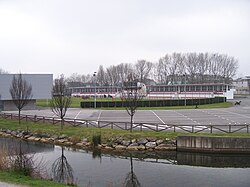Football


Association football is the most popular sport in Asturias. Sporting Gijón and Oviedo are the two most prolific teams in the region as they played more than 40 seasons in La Liga. When both teams meet, they play the Asturian derby. Other teams such as Avilés, Caudal and Langreo have played several years in the second division.
Oviedo Moderno is the main women's club in the region. The club from the capital is the only team in Asturias that played in the first division more than one season since its establishment as a one-group league. Gijón and Sporting Gijón have also played in the top tier.
The Asturias autonomous football team currently only plays the Spanish stage of the UEFA Regions' Cup, where only players from fourth tier and lower are eligible to represent the regional team.
Internationally, El Molinón and Carlos Tartiere hosted several matches of the Spanish team and also hosted the Group 2 during the 1982 FIFA World Cup. The most famous match was the Disgrace of Gijón ; West Germany and Austria were accused of match-fixing after they ended the match with a 1–0 that qualified both teams and eliminated Algeria, who played previously in Oviedo.
Several Asturian players have played for Spain. David Villa won the World Cup in 2010, Luis Enrique, Abelardo and Javier Manjarín won the golden medal in the 1992 Olympics and Michu was the last Asturian who made his debut with the national team.
















